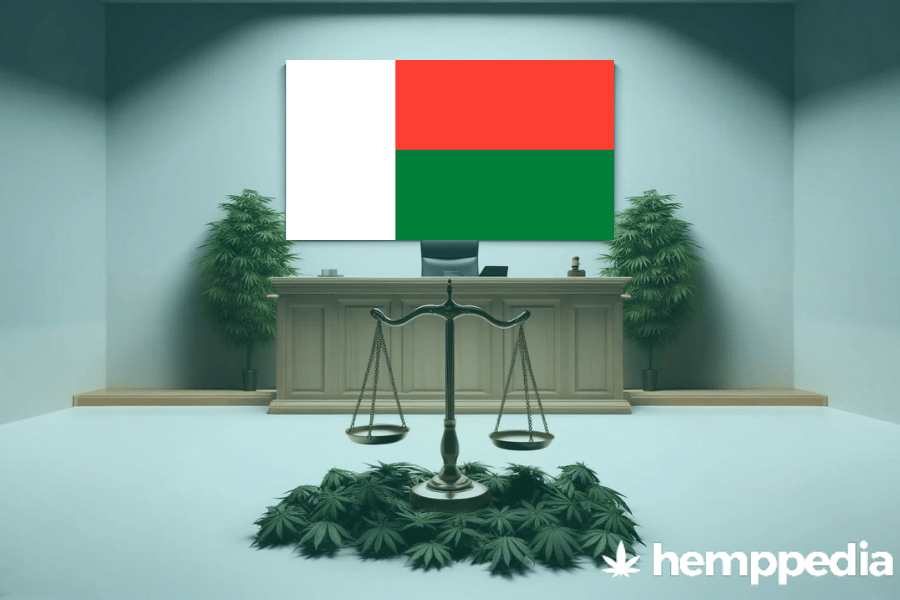TL;DR: Is CBD Legal in Madagascar?
The legal status of cannabis-derived products, particularly Cannabidiol (CBD) is a topic of global interest. Unlike THC-bearing cannabis known for its psychoactive properties, CBD, which originates from both hemp and marijuana, is often distinguished in legal terms due to its non-psychoactive nature, resulting in varying legal statuses across the world. In the Island nation of Madagascar, the use, possession, and trade of CBD products remain largely illegal as of now.
| Usage | Possession Limits | Legal Distinction from THC products |
|---|---|---|
| Illegal | None allowed | No specific distinction. All cannabis products are typically viewed as illegal |
Overview of CBD Legislation
Understanding Key Terms
CBD or Cannabidiol is one of the cannabinoids found in both hemp and marijuana plants. It is non-intoxicating unlike its counterpart, THC or delta-9-tetrahydrocannabinol. The latter is the primary psychoactive compound in cannabis that gives the high sensation.
Legal Landscape
Although the global legal environment for cannabis and its derivatives including CBD is evolving, with more nations moving towards cautious regulation rather than outright prohibition, Madagascar presently has a stringent stand on all cannabis-derived products.
Regulatory Bodies
Regulatory affairs concerning Narcotic drugs in Madagascar are controlled by the Ministry of Public Health and the Ministry of Public Security.
Historical Context
In Madagascar, cannabis was introduced during the slavery period but its use and culture remain illegal as the country reinforces a strict policy on narcotics.
Possession, Use, Cultivation and Sales
In Madagascar, the possession, use, cultivation, and sale of cannabis and its products, including CBD, are unlawful. No age exemptions apply, and there are no specific regulations governing the import or export of CBD products across Madagascar borders.
Enforcement and Penalties
Non-compliance with Madagascar’s CBD prohibition attracts significant penalties, including imprisonment and fines. There is no distinction in Madagascar law between regulation for medical and non-medical use of CBD, and no systems exist for patients to access or prescribe CBD for medical purposes.
Comparative Analysis
Compared to regions where CBD has been decriminalized or where medical cannabis programs have been established, Madagascar’s stern stance on all cannabis-derived products stands out. This will likely remain the status quo unless international findings on CBD’s health benefits influence a shift in the country’s legislation.
Conclusion
In conclusion, while attitudes towards CBD are changing globally, Madagascar currently maintains a strict prohibition on all cannabis products, including CBD. The legal environment may likely change given the global trend of CBD regulation but for now, all forms of acquisition, usage, and possession of CBD are unequivocally illegal. It’s crucial to stay informed about the legal landscape before acquiring or using CBD in Madagascar or any foreign jurisdiction.





